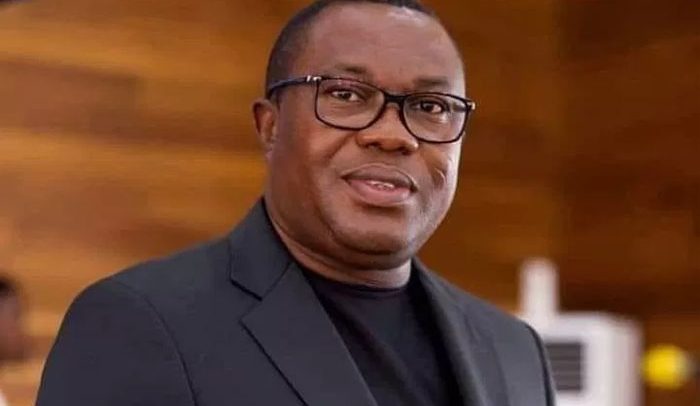Samuel Ofosu-Ampofo
The prosecution yesterday called its first witness in the trial of the National Chairman of the opposition National Democratic Congress (NDC), Samuel Ofosu-Ampofo, and a Communications Officer of the party, Anthony Kwaku Boahen.
The first Prosecution Witness, Benjamin Osei Ampofo Adjei, a broadcast journalist with Accra-based Adom FM being led by the Director of Public Prosecution (DPP), denied his police investigation statement as well his witness statement presented by the prosecution.
The controversy began when the DPP asked the witness whether he (witness) remembers giving a statement to the police in respect of the case.
The witness told the court that on May 13, 2019, he was at the office when a police officer brought a statement for him to sign.
He said the statement was brought just a few minutes to the 6 pm bulletin so he just signed it without reading the content of the statement.
The court was somehow taken aback when the DPP showed Mr. Adjei his witness statement and he said that was the first time he was seeing it.
The witness, after perusing the statement that was given to him by the prosecution, admitted that it was his signature that was on it but said “this is the first time I’m seeing it.”
This prompted the trial judge, Justice Samuel Asiedu, a Court of Appeal judge, to ask the witness how come his signature was on the document if indeed that was the first time he was seeing it.
Tendering
The tendering of the statement by the witness generated heated debate as the defence lawyers were against the court accepting the document.
Tony Lithur, counsel for Mr. Ofosu-Ampofo, in his objection, said paragraph 32 of the practice direction on disclosures and case management states that a witness statement may be admitted if the defence and prosecution all agree to its admission.
He said they do not agree to the tendering of the document because the witness had said the statement was prepared and brought to him to sign, meaning the statement is not his.
He added that the decision to whether admit the statement or not is with the defence and the prosecution and not subject to the discretion of the court.
Dr. Bassit Aziz Bamba, representing Mr. Boahen, associated himself with Mr. Lithur, saying his client does not agree to the tendering of the witness statement.
The objection was opposed by the DPP who said the witness had already confirmed that he signed the witness statement which was carved out of the investigation statement which was not objected to by the defence.
She added that the court has discretion to either adopt or reject the statement they sought to tender.
Justice Asiedu dismissed the objection and admitted the statement saying the statement was signed by the witness, thereby making it valid.
He added that practice direction is not law but a direction and that does not take away the discretion of the court.
Audio Tape
There was also another moment of disagreement when the prosecution attempted to tender an audio recording of an interview the witness had with Mr. Boahen in the aftermath of the alleged leaked tape.
The DPP wanted the tape to be played in the courtroom leading to its tendering but the court said it did not readily have a piece of equipment to play the tape but provisions would be made available at the next sitting.
But the defence lawyers said they do not have the said tape and would like to listen to it to determine whether they have any objections to its tendering.
Hearing continues on February 5, 2020.
BY Gibril Abdul Razak


